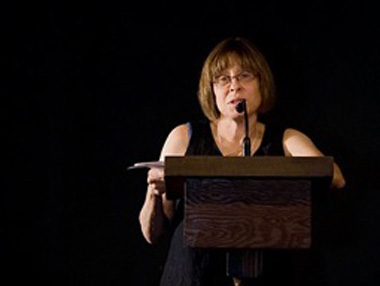Berlin Now: The City After the Wall nonfiction by Peter Schneider (Farrar Straus & Giroux)
Borrowed Tales, prose fiction by Deborah Woodard (Stockport Flats)
The Realm of Last Chances, a novel by Steve Yarbrough (Knopf/Vintage)
* * * * * * * * * * * * * * * * * * * * * *
“To this day, the destruction of the old cityscape in the wake of two dictatorships still marks the architecture of Berlin – despite and so many fresh starts,” writes Peter Schneider in Berlin Now: The City After the Wall. Yet this defect does nothing to detract from the curiosity of visitors from around the world.” Attracting 25 million overnight visitors annually, Berlin is catching up with Paris. With the end of World War II, New York may have usurped from Paris the west’s ruling position as the hub of art and thought, but Berlin stands for the most rapid and persistent mutation of culture, a constant digging-out from the baleful effects of history and geopolitics.
 In his new book, Schneider not only explains the flaring dynamics of Berliner mentality, but also expresses them through the restlessness of his approach. Acutely observed and richly informed, Berlin Now blends reportage and anecdote, with one eye on history and the other on the attitudes and behaviors of the new city. If tourists go to Berlin to experience the club and culture scene, Schneider takes us deeper with it.
In his new book, Schneider not only explains the flaring dynamics of Berliner mentality, but also expresses them through the restlessness of his approach. Acutely observed and richly informed, Berlin Now blends reportage and anecdote, with one eye on history and the other on the attitudes and behaviors of the new city. If tourists go to Berlin to experience the club and culture scene, Schneider takes us deeper with it.
In one chapter, he excavates the lingering deleterious effects of the Stasi – the former security apparatus of East Germany, its largest employer (100,000 permanent and 185,000 “informal” employees i.e., informants). With a curiosity for the telling fact, Schneider asks why East German women/West German men matches are seven times more common than the reverse, and then devises an intriguing explanation.
 Schneider is best known in America for his Berlin novel trilogy, especially The Wall Jumper (1983). After a speech he gave in 1967 during a demonstration at the Free University of Berlin, he leaped into prominence as a student leader and a figure of national stature. Now 74 years old, Schneider has chronicled and critiqued the once-divided city for the past four decades. His perspective is long and deeply considered. Fifteen years ago, he told The New York Times, “It still makes sense to consider oneself of the left. If, that is, one openly admits to those parts of being ‘left’ in which one can no longer believe.”
Schneider is best known in America for his Berlin novel trilogy, especially The Wall Jumper (1983). After a speech he gave in 1967 during a demonstration at the Free University of Berlin, he leaped into prominence as a student leader and a figure of national stature. Now 74 years old, Schneider has chronicled and critiqued the once-divided city for the past four decades. His perspective is long and deeply considered. Fifteen years ago, he told The New York Times, “It still makes sense to consider oneself of the left. If, that is, one openly admits to those parts of being ‘left’ in which one can no longer believe.”
If Schneider’s book appeals, you may want to consider Metropolis Berlin, 1880-1940 (2012, University of California Press), edited by Iain Boyd Whyte and David Frisby. This book comprises texts by the architects, planners, sociologists, critics, and journalists who observed the creation of Berlin, the remains of which poke through Schneider’s contemporary narrative.
[Published August 5, 2014, 325 pages, $27.00]
* * * * * * * * * * * * * * * * * * * * * *
In a review of stories by Oskar Maria Graf, Walter Benjamin spelled out what he believed literature must do to recapture a threatened world. “We seldom think about how much freedom it takes to tell even the smallest story,” he wrote. “Any bias robs the narrator of a bit of his articulateness.” If this sentiment resonates with a prose fiction writer, then how she/ he defines the word “bias” in this context will determine just how far afield from convention she/he will venture.
 Borrowed Tales, Deborah Woodard’s book of 55 enigmatic prose pieces and sequences, appears to prize assembly over narrative guidance. Spoken by several characters, they willfully spurn the social cues of speech. The assembled elements include recycled and refreshed material (based on a knowledge of existing stories), fan fiction (extensions of adored texts), and persona-scripting (providing speech for unregistered characters). The book’s characters include Hamlet and Ophelia, the artist Gordon Matta-Clark and his imaginary sister, pregnant teenagers and teachers at Detroit’s Catherine Fergusen Academy, grafittists, an acquaintance who wrote letters home from a job in the Peace Corps, a runaway teenager from Los Angeles who keeps a notebook, and a deaf man institutionalized against his will in North Carolina.
Borrowed Tales, Deborah Woodard’s book of 55 enigmatic prose pieces and sequences, appears to prize assembly over narrative guidance. Spoken by several characters, they willfully spurn the social cues of speech. The assembled elements include recycled and refreshed material (based on a knowledge of existing stories), fan fiction (extensions of adored texts), and persona-scripting (providing speech for unregistered characters). The book’s characters include Hamlet and Ophelia, the artist Gordon Matta-Clark and his imaginary sister, pregnant teenagers and teachers at Detroit’s Catherine Fergusen Academy, grafittists, an acquaintance who wrote letters home from a job in the Peace Corps, a runaway teenager from Los Angeles who keeps a notebook, and a deaf man institutionalized against his will in North Carolina.
This is “Hamlet 5”:
I’ve been swept clean. I’ve been led back, waiting for a ghostly caress, a lost quid. I’m taking up a collection, along with character description: tell me, where did I go wrong? Later, events touch shore. And a speckled globe slides away from us. Dune grass loves to live in the eye of typhoons, in the confusion of branches opposite pulped oranges, I thought, dwelling on her tight embrace. I took what I needed and then some, to allot meaning from deadwood. Quick meal in the cafeteria? I peered through pince-nez at my notes on stoicism. In this sloping stronghold, the wheels go right up to the barn. A face begins for you, etched in mud scrapped from emerald spokes. The trees have been topped. Garden implements: one rake and one stoic sitting down, affixing rungs to it. The moment replays: alien philosophy, no foothold. I was shiftless and noble. Add color to the blanket and marry her… Plant trees to begin with, right? Horatio can make his living shooting. Winds beneath us, what’s their inclination? How we reap. I get down from my bike and climb into the back of the pickup. All the aisles of the orchard are sided by arbors. I brush off my trousers. Was this equilibrium? Man in kimono, hair in ponytail. Maybe Ophelia was asking the moss she wandered to and from, coercing the roots, the underblossom. Her face stayed open. Set it on the windowsill like a peony. Over and out. Brooms are at the ready, though the bruises, conversely, are not. What I could do was burn her a CD. Ah, only the head of the flower is gilded for our delight. In the safe glumness, get it over with — I did! Would she be standing in the pool? The most basic question kept bobbing about.
 So, there is assembly. But these pieces are, at the same time, also forms of subtraction and dismantling – a disassembling of the reader’s expectation that a character’s condition and motives for speaking must yield to code and comprehension. “The most basic question” has no answer, but the confusion that inspires it is in full flower. These are lives that have been assaulted in some way and now utter as if the first person has been tamped down into the vibrant but startled or wayward core of a being.
So, there is assembly. But these pieces are, at the same time, also forms of subtraction and dismantling – a disassembling of the reader’s expectation that a character’s condition and motives for speaking must yield to code and comprehension. “The most basic question” has no answer, but the confusion that inspires it is in full flower. These are lives that have been assaulted in some way and now utter as if the first person has been tamped down into the vibrant but startled or wayward core of a being.
Another most basic question asked here: now that freedom has been accessed to tell these small stories, what has been achieved, what accumulates? Perhaps for Woodard, “bias” is any urge that would put freedom at the service of anything outside of the prose poem. That makes things difficult for the reader – unless he/she is willing to be as porous as Woodard’s characters to the obscure conditions that trigger these speeches in the first place.
[Published December 1, 2012. 104 pages, $18.00 paperback]
* * * * * * * * * * * * * * * * * * * * * *
Steve Yarbrough’s sixth novel, The Realm of Last Chances (2013), was recently issued in paperback from Vintage Contemporaries. The story centers on Kristin Stevens, a middle-aged University of California administrator who loses her job as vice president for academic personnel and moves with her carpenter/musician husband Cal to Massachusetts. Living in a suburb north of Boston, she is hired for a similar position at North Shore State College where departmental politics are rampant.
 The ubiquitous elements of displacement and distance comprise the novel’s psychic environment. With sure strokes, Yarbrough fixes Kristin as tinged with regret but not overtly regretful, weary but not utterly jaded, responsive to her husband but not fully engaged. There is distance from California, but also from the literature and music that became secondary. Soon Kristin becomes involved with her neighbor, an aspiring writer named Matt Drinnan who works at his friend’s deli after having stolen cash from his former bookstore employer.
The ubiquitous elements of displacement and distance comprise the novel’s psychic environment. With sure strokes, Yarbrough fixes Kristin as tinged with regret but not overtly regretful, weary but not utterly jaded, responsive to her husband but not fully engaged. There is distance from California, but also from the literature and music that became secondary. Soon Kristin becomes involved with her neighbor, an aspiring writer named Matt Drinnan who works at his friend’s deli after having stolen cash from his former bookstore employer.
To Yarbrough’s credit, the novel takes up the notions of honesty and decisive choice – in marriage, love affairs, employment, academics – without tendentiousness or implicitly asking the reader to agree in advance with the virtues of honesty’s demands. The author is more invested in displaying things as they are instead of satisfying the usual, craven expectation that people are wired to achieve wisdom.
The Realm of Last Chances is placidly comedic, an aptly controlled tone implying familiarity with and an empathic acknowledgment of human ineffectuality – particularly in diluting the power of the past to confine actions in the present. When a case of alleged faculty plagiarism flares up, Kristin becomes embroiled in it – but the publishing scam seems almost weightless compared to the implied and partially revealed sins and damage of the past. Despite his crimes and marital failures, even the hapless Matt earns a comedic embrace through his townie friendships. The alternately taciturn and simmering Cal, unemployed and increasingly alcoholic, plays a stabilizing role in the end. Academia takes a few hits; one campus character says, “I even hate the word ‘profession’ because whatever it is we’re doing now, it is not professing. We may be provoking, we’re definitely proliferating, but mostly we’re prevaricating.”
I suspect some readers will find slackness where I find the pleasures of lived-in pacing. Virtually non-lyrical and unsurprising, Yarbrough’s language hews closely the limits of his characters (though there are too many clunkers like “he broached this possibility,” “ugly as sin,” “within an inch of his life” and “harboring few illusions”). Early on, the unnamed narrator says of Matt, “Lately, he felt insubstantial, weightless, as if he were merely the idea of a person or a set of extinguished expectations.” Summations, such as the one below about Kristin, are unabashedly direct:
 “Clearly she’d cut her own losses, settling for less than she’d sought in every respect, becoming an administrator rather than the professor and literary critic she’d set out to be and leaving a top-tier university for a third-rate state college because she had no other choices. She’d lost the man she loved and married another one for something less than love. Matt knew as much even though she never said so.”
“Clearly she’d cut her own losses, settling for less than she’d sought in every respect, becoming an administrator rather than the professor and literary critic she’d set out to be and leaving a top-tier university for a third-rate state college because she had no other choices. She’d lost the man she loved and married another one for something less than love. Matt knew as much even though she never said so.”
The reader knows as much, too – and as little as the characters seem to comprehend about themselves. But Yarbrough keeps us invested in their situations. About Matt, Kristin finds that “there was something so boyish about him, a vulnerability that made her feel many things, one of which was a desire to protect him, even from herself.” Yarbrough’s narrator speaks from within that responsible, emotional buffer zone.
[Vintage Contemporaries paperback edition, published May 6, 2014. 288 pages, $16.95]